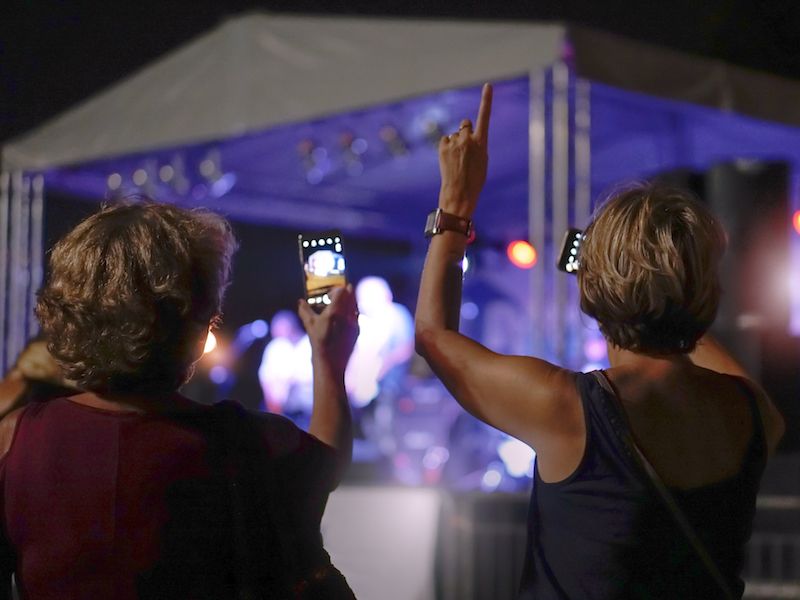
We’ve been looking forward to summer activities all year: going to the beach, relaxing by the swimming pool, and damaged hearing? That’s right, summer has a few hidden potential risks to your hearing, either from loud noises or the external situations you might find yourself in. Any sounds above 80 decibels can injure your ears, while enduring loss of hearing can take hold in swimming pools or other bodies of water. To keep your hearing safe and sound this summer, you need to be aware of your surroundings and take preventative measures. Here are 6 of the summer’s hidden hearing risks.
When You go to Concerts, Use Ear Protection
Whether you’re at an indoor venue or an outside concert venue you still need to wear hearing protection during concerts. Live music can have volumes over 90 decibels, even at outside shows, which is within the danger zone of hearing loss. So whether you’re attending an outside or inside shows, it’s a good plan to wear earplugs. You can still hear the sounds with earplugs in it’s just dampened a little. If you’re bringing young children to a show, think about getting them a heavy duty set of earmuffs because kids have more delicate hearing than adults.
Loud Fireworks Can Damage Your Ears
Honestly, there are a lot of reasons to avoid fireworks in the summer. It’s not exclusively the 4th of July shows which are professional that can harm your hearing, we mean the backyard fireworks which every summer cause hundreds of accidents. In addition to causing hand injuries, blindness, and home fires, personal fireworks can also cause severe damage to your ears since they’re known to get to volume levels of 155 dB. This year, on the 4th of July, enjoy the show from a little further away and leave the fireworks to the professionals.
Lawnmowers Can Bring About Hearing Loss
If you’re really serious about your lawn, most likely you’re out there at least once a week on your lawnmower, using your edger, and trimming your bushes. But this muffled feeling in your ears is an indication that your hearing has been damaged. That’s because the lawn tools, which are constantly loud, have a slow and steady impact on your hearing. You may have noticed lawn professionals using some kind of hearing protection, you should take a cue from them and use earmuffs or earplugs next time you take care of your yard to make certain your ears doesn’t get injured.
Hears How to Protect Your Hearing When You Take a Swim
Millions of people suffer from swimmer’s ear every summer, which happens when bacteria-loaded water gets stuck inside your ear canal. The bacteria will then infect the ear, causing painful earaches and swelling. These bacteria are generally found in lakes and rivers but could also be found in pools and hot tubs if the water is not correctly managed. But if you have your ears treated by a hearing specialist you will probably be fine, and no irreversible loss of hearing will occur. To prevent swimmer’s ear, however, you should wear specialized swimming earplugs in the pool and have your pool water analyzed to make sure the chemical balance is safe.
Water Sports And Boats
If you enjoy the water, summer is beach and boating time for you. But, jet ski and boat engines are usually noisy,they can get up to over 100 decibels. Sustained subjection to that much noise for around 15 minutes can bring about lasting hearing impairment. Again, it’s probably a smart choice to use a couple of disposable, foam earplugs while you’re out on the water to make sure you don’t unwittingly harm your hearing.
Car Races Can Injure Your Hearing
It doesn’t make a difference what kind of auto racing you love, stock cars, midgets, motorcycles, drag racing, Formula 1. If you attend many auto-races this year, they all pose a danger. 120 dB is well within the danger zone for hearing loss and a number of races go way above this. As mentioned earlier, your children should wear muffs whereas you should use earplugs at the very least. Otherwise, you might not be able to enjoy the sound of those engines in the future.